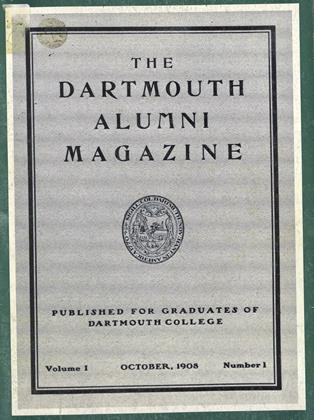THE LETTERS OFGUST AVE FLAUBERT, 1857-1880 Edited and translated by Francis Steegmuller '21 The Belknap Press of the Harvard University Press, 1982. 336 pp., $15.00.
The first volume of Flaubert's correspondence, skillfully edited and brilliantly translated by Francis Steegmuller, covered the most colorful and dramatic episodes of the novelist's life: his exalted adolescence, the onset of his nervous disease, his long journey to the Middle East, his tumultous affair with Louise Colet, and the five years spent writing Madame Bovary. This second volume has a more muted, and gradually more somber tone, as Flaubert's friends die one after another, and as the tragic historical events of 1870-1871 throw him into fits of bitter despair and disgust about his fellow humans. "I feel I am becoming a fossil, a being unconnected with the life around me." To be sure, Flaubert has always been haunted by the prospect of old age and death, particularly first nervous attack in 1844. But those feelings are no longer adequately contained in sentences such as "I have always existed ... I am possessed by memories that go back to the Pharaohs." Each suffering, each new occasion for unhappiness is now suffused with a sense of foreboding. "The shadow is engulfing me, as old Hugo would say." And the solitude that Flaubert has so carefully protected by living most of the year in his Normandy house is also turning into his prison and his torture: "No one to talk to!"
The reader has the impression that the question of literature is less prominent, less anguishing, in the second part of Flaubert's life. This is due only in part to the editor's choice of material, for it is obvious that the terms of the question change after 1857 and that is the year Francis Steegmuller has judiciously chosen for the end of the first volume and the beginning of this new one. At the end of the 1830. 1857 collection, Madame Bovary has just been published and Flaubert has been tried in court for the "immortality" of the novel. Fie is exhausted and embittered by the battle, but at the same time greatly comforted by the appreciation of Sainte-Beuve and Baudelaire. Although he will never hold the public in great esteem, he will never again agonize over the decision to publish or not publish.
Another debate that seems even more definitely ended after 1857 is that between Art and life or more precisely between Art and love. After the break with Louise Colet, Flaubert has never again attempted to "accommodate Venus and Apollo." "The Muse, crabbed though she may be is the source of less grief than Woman!" For Flaubert the hermit, writing remains nevertheless until the end a torturing and exacting process of searching for the proper expression, "the only one, and which is at the same time, harmonious." A cry of pain opens the volume: "I am sick with fear, filled with terrors of all kinds: I'm about to start to write." It is the beginning of Salammbo.
The correspondence with George Sand is given a royal share of the book, and includes sufficiently significant excerpts from her own letters to give the reader the flavor of the exchange. Although the differences in their literary styles and philosophies made a friendship between them appear improbable, they soon became freely affectionate in their letters. The benevolent George Sand was the perfect foil for Flaubert's disenchantment. But whether satirical, desperate, or raging, his pessimism never made a dent in his friend's idealism. This aspect of Flaubert's thinking is an indispensible supplement to his theory about literature. It is perhaps, as Sartre has shown in The Family Idiot, the same frightened and disappointed bourgeois of 1848 who can write: "Great art is scientific and impersonal" as well as "the entire dream of democracy is to raise the proleteriat to the level of bourgeois stupidity."
Flaubert, prophesying that criticism was barely at its dawn, called longingly for the day when critics would be sensitive to art. Thanks to Francis Steegmuller's sensitive and artisitic translation, the readers of Flaubert's novels can now have an insight into the "unconscious poetics" to use Flaubert's own expression that brought into being works as diverse as The Temptation of Saint Anthony and L'Educationsentimentale.
Professor Gan din. who did her graduate studiesin philosophy at the Sorbonne, teaches in thedepartment of French and Italian. She specializes in the French new novel, surrealism, andthe nineteenth century novel.
 View Full Issue
View Full Issue
More From This Issue
-
 Feature
FeatureDoubt and Passion: Notes on Contemporary American Novelists
October 1983 By Horace Porter -
 Feature
FeatureArtists in Residence
October 1983 By Churchill P. Lathrop -
 Feature
Feature40 Years at the Helm
October 1983 By Charlie Widmayer '30 -
 Feature
FeatureRudolph Ruzicka's Two Dartmouth Medals
October 1983 By Edward Connery Lathem -
 Feature
FeatureMeet Ted Leland
October 1983 By Brad Hills '65 -
 Feature
FeatureThe Widmayer Touch
October 1983 By Cliff Jordan '45
Books
-
 Books
BooksFaculty Publications
January 1933 -
 Books
BooksTOYS IN AMERICA.
March 1962 By ALFRED F. WHITING -
 Books
BooksQUICK GUIDE TO WINE.
NOVEMBER 1966 By C.E.W. -
 Books
BooksWINNING FOOTBALL PLAYS.
February 1955 By CLIFF JORDAN '45 -
 Books
BooksSIDEWHEELER SAGA
July 1953 By HERBERT F. WEST '22 -
 Books
BooksARROWS OF LIGHT
May 1935 By William H. Wood


